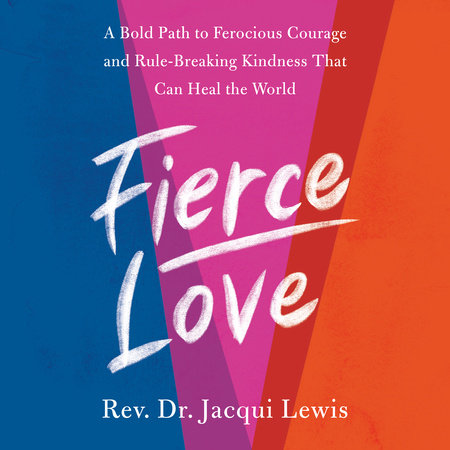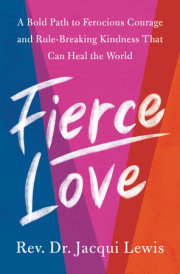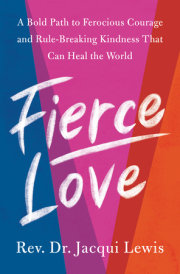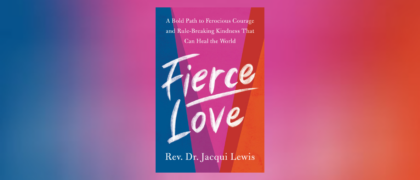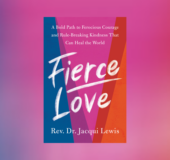Chapter OneLove Yourself Unconditionally. It All Starts Here.
Love yourself first and everything else falls into line.
—Lucille Ball
Loving yourself unconditionally is a tall order, but as a daily practice it’s essential. Self-love is like fuel in the tank of our souls. I hate to admit it, but when my reservoir of self-love is hovering on empty, I’m cranky, short-tempered, and quicker to anger. When I’m feeling low about myself, I’m not a loving presence to my husband, family, and friends; I don’t listen as well, and I can be defensive. In my professional life, when the self-love meter is low, I overfunction and my workaholism resurfaces.
I fall in and out of love with myself every year, sometimes on the same day. I’ll preach a sermon that really lands, then open my e-mail that evening and see I’ve received yet another hateful message from a stranger; apparently, a woman in a leadership position still rankles some. Or I’ll be standing at the grill, enjoying the smell of smoke on the breeze, and decide to call my eighty-five-year-old dad because barbecuing is our shared passion. I tell him some personal things, some celebratory things, and he says something he thinks is funny but is actually awkward, and a little painful. Old wounds flood my heart, and I’m back in my eighteen-year-old story, feeling sorrow and uncertainty. I might be at a Black Lives Matter rally, full of purpose and power. But then I turn on the news when I get home and see the story of one more dead Black person, and I’m pulled low. To be honest, it’s so hard to love myself when the culture pushes the message that Black bodies like mine are dangerous, unworthy, and expendable. Some days I want to curl up and watch Black Panther over and over again; I’d rather be in the beautiful world of Wakanda, I think, than in the United States, where I live.
Let’s face it: This nation is an environment in which it is difficult for any of us to learn to love ourselves well. Our history—our shared story—is one fraught with violence and oppression. British colonizers left their homes and sailed the seas, seeking freedom for themselves but gaining it by taking land (and life) from those who already inhabited the land they called Turtle Island. The economy of this brave new world was built on the labor of indentured servants and enslaved Africans. Our founding fathers wrote lofty ideals into documents that did not confer inalienable rights on the poor, the Indigenous, the African, or women. Over time, all of us who are not Anglo-Saxon, Protestant, wealthy, straight men have been denied full access to the American dream.
These national narratives—white is right; grab power by any means necessary; God is Christian; queer is wrong; women are the weaker sex; keep what you steal; lies are true until discovered—have wormed their way inside of all our stories. These negative concepts impact our ability to love ourselves and therefore one another. To create a more loving and just society, we have to dig deep into our stories, sift through the good, the bad, and the ugly, and find the meaningful moments that source self-love.
Just as the story of our nation shapes us, all the stories in our lives make us who we are. Stories carry the details of the relationships and experiences that form us. Birth order, gender, religion, sexuality, racial identity—these are just some of the stories that are woven together to make a self. They tell us something about the contexts in which we’ve become who we are, the environments in which we have grown. They tell us how our parents responded when we were hungry or afraid, how our teachers reacted to our abilities in the classroom, what our lovers communicated to us when we were dating.
To foster more love for ourselves, we need to look deeply at these stories and search them for meaning, for lessons. When we do this, we’ll learn about our childhood, about how our loved ones held us, showed up for us. Were they more absent than present? Who filled in the gaps for us, to help us know we were shiny and wonderful? Examining our stories, we’ll learn about our own behavior with the people we love. Did we show up for them? Were we angry, bitter, gentle, kind?
It takes courage to peer into our stories and see what’s there; it’s like looking into a mirror. It can be eye-opening, and we can be startled by what we see. Writing this book—opening up my story to you and for myself—has required Advil, frequent breaks, and a nightly glass of red wine! I think it’s worth it, though, as part of my ongoing work, to look closely at my story and see what’s really happening inside. Toward the goal of finding self-love and self-compassion, you also need to do this work, to take a good look at yourself and the world around you, to see what’s what. How did you get to be you? Can you love you better? When we look in the story-mirror, we’ll see cringeworthy moments that challenge our best view of ourselves, moments we wish we could cancel or delete. But we’ll also revisit the times we overcame those regrettable experiences and affirm the best of ourselves and our capacity for love of self and others. It takes grace to keep it all in front of us—the embarrassing moments and the moments of great joy and affirmation. Accepting ourselves, forgiving ourselves—this is what unconditional love is about.
It takes grace to keep it all in front of us—the embarrassing moments and the moments of great joy and affirmation. Accepting ourselves, forgiving ourselves—this is what unconditional love is about.
What I Learned in Kindergarten
When I look deep into my stories, I find myself back in kindergarten. It was 1964, and our family lived on Pease Air Force Base, in Portsmouth, New Hampshire. Being at school on the base meant being with Mrs. Easley—a joyful woman, with a gently wrinkled face, white hair, and deep-blue eyes that twinkled like stars. And it meant sitting in a circle singing, learning, and laughing with friends. Tired from mornings of spelling and building with blocks, we ate lunch and then took naps on cots under our desks.
Occasionally, for a special afternoon treat, we churned butter together, turning sweet milk into a salty spread for Ritz crackers, each bite savored just before we went home. It felt like taking a delicious mouthful of Mrs. Easley’s love home with me.
I usually walked home with my two best friends, both named Tommy. Tommy Holly was a gorgeous blond boy with eyes the color of the sky. He had lost and found his two front teeth, so they loomed large in his smile. Tommy Hollister was Dennis the Menace in the flesh, with red hair, freckles, a temper, and a penchant for striped shirts. He was a cartoon come to life. Chivalrous before knowing what that meant, the Tommys took turns putting my chair up on the table at the end of each day, so the janitor could mop, and setting it down on the floor again the next morning. The three of us always sat close together, even during lunch and snacktime; we were inseparable.
Freshly churned butter was a wonderful taste from kindergarten days, but I also had my first bitter taste of hate in the spring, when a girl named Lisa moved to our base from Mississippi. She was a pretty little girl, with dark-brown eyes and blond hair cut short. One day, she squeezed between me and Tommy Holly and stage-whispered: “You’re not supposed to be friends with her, you know. She’s a nasty nigger. And she gets chocolate milk from her mama’s tits.”
A nigger. I don’t think I’d ever heard this word before. Mom and Dad never said it. In fact, even after my siblings and I were old enough to spell, if we were within earshot when they described people, our parents spelled w-h-i-t-e, A-s-i-a-n, S-p-a-n-i-s-h, and N-e-g-r-o. When I asked them about this later, my folks explained they were trying to shelter us from the consciousness of race and racism in our nation.
Though I didn’t know the word, when Lisa spat out what I came to understand as the N-word, I knew she was being unkind. Her nastiness made me feel nasty. I have no idea how I knew to say this or where I had heard it, but I put my hands on my hips and said: “White cracker, white cracker, you don’t shine. I bet you five dollars I can beat your behind.” It was as though Lisa and I were in a grown-up play, interacting in ways and with words that someone else scripted.
At that age, I vaguely understood that there were tensions in the American South. I had sipped cool water from a Colored fountain outside the courthouse in Ruleville, Mississippi, when visiting my grandmother. I had heard the story of Emmett Till, a Black boy killed for whistling at a white woman, a fact that was later called into question. I knew that when Mom and Dad were little, they had to walk a long way from their homes, past the “regular” schools to the ones for Colored people. But those stories were from down South, far away. And now Lisa had brought Mississippi with her to my happy little classroom. Right there, in my safe space in New Hampshire, she turned the N-word on me like a Southern police officer turning a fire hose on protesters.
Copyright © 2021 by Dr. Jacqui Lewis. All rights reserved. No part of this excerpt may be reproduced or reprinted without permission in writing from the publisher.

